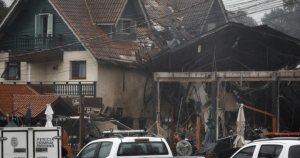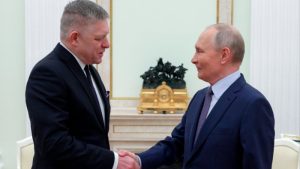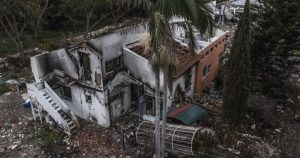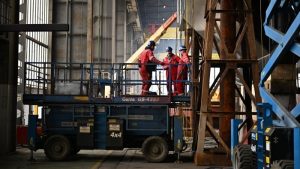Assad sent planeloads of Syria’s cash to Moscow
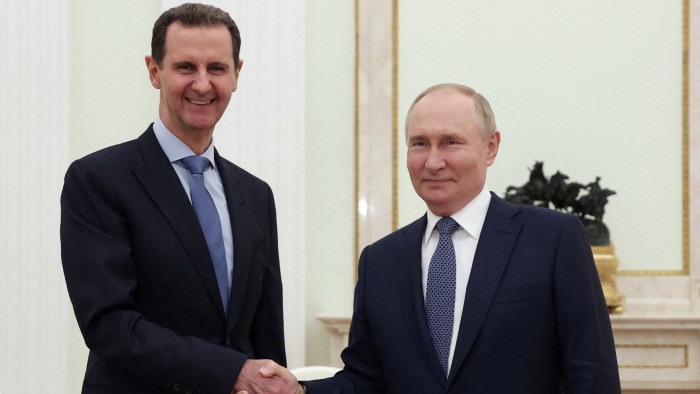
This article is an on-site version of our FirstFT newsletter. Subscribers can sign up to our Asia, Europe/Africa or Americas edition to get the newsletter delivered every weekday morning. Explore all of our newsletters here
Good morning. In today’s newsletter:
-
Assad sent planeloads of Syrian cash to Russia
-
The challenges ahead for South Korea’s interim leader
-
Tokyo’s plans for a 4-day working week
Bashar al-Assad’s central bank airlifted around $250mn in cash to Moscow in a two-year period when the then Syrian dictator was indebted to the Kremlin.
The Financial Times has uncovered records showing that Assad’s regime, while desperately short of foreign currency, flew banknotes weighing nearly two tonnes in $100 bills and €500 notes into Moscow’s Vnukovo airport to be deposited at sanctioned Russian banks between2018 and 2019.
The unusual transfers from Damascus underscore how Russia became one of the most important destinations for Syria’s cash as western sanctions pushed it out of the financial system.
Opposition figures and western governments have accused Assad’s regime of looting Syria’s wealth and turning to criminal activity to finance the war and its own enrichment. The shipments of cash to Russia coincided with Syria becoming dependent on the Kremlin’s military support, including from Wagner group mercenaries, and Assad’s extended family embarking on a buying spree of luxury properties in Moscow. Read the full story here.
-
Moscow withdraws troops: Russia has evacuated at least 400 soldiers from the Damascus region in recent days in co-ordination with the main rebel faction that toppled Assad’s regime, an official from the group said.
-
More Syria news: The head of Syria’s most powerful rebel faction has signalled that his forces do not want new conflicts despite a wave of Israeli attacks on the country since the fall of the Assad regime.
Here’s what else I’m keeping tabs on today:
-
Economic data: China reports the November house price index and retail sales figures. S&P Global flash manufacturing PMI is due for Japan and Australia.
-
UK-Australia relations: The foreign and defence secretaries from both countries will meet.
Five more top stories
1. South Korea’s acting president Han Duck-soo promised to “make sure there will be no vacuum in state affairs” as he sought to reassure investors and foreign allies just hours after the impeachment of President Yoon Suk Yeol on Saturday. But the prime minister, a Yoon appointee and career technocrat, faces a series of formidable challenges steering the country through arguably its worst political crisis in decades.
2. A Russian tanker broke apart during a heavy storm in the Black Sea yesterday, spilling some of its 4,300 tonne-cargo of fuel oil in what could potentially be one of the region’s largest environmental disasters in several years. The Volgodonsk 212 carrier came apart about 8km from the shore in the Kerch Strait, which separates the east coast of the Russian-annexed Crimean peninsula from mainland Russia.
3. The US Treasury has told Nippon Steel that the panel vetting its proposed acquisition of US Steel has not reached consensus on how to mitigate security risks. The lack of consensus at the Committee on Foreign Investment in the US raises the odds that President Joe Biden will block the $15bn deal.
4. The Federal Reserve is set to take a more cautious approach to interest rate cuts on fears that the Trump administration’s policies will stoke higher inflation, according to academic economists polled by the FT.
5. China’s robotaxi companies should see costs coming down and major cities opening up to their fleets next year, according to the chief executive of the latest start-up to seek more funding for its autonomous driving ambitions. James Peng, CEO and founder of Guangzhou-based Pony.ai, said it planned to expand its robotaxi fleet from about 250 to at least 1,000 vehicles in 2025. Read Peng’s interview with the FT.
-
More Chinese business news: A growing number of Chinese ecommerce merchants are selling their products on Russia’s largest online marketplaces as exporters look for new markets as sanctions hit both countries’ traders.
News in-depth

Earlier this month, Taiwan was bracing for a Chinese military exercise to “punish” its president, Lai Ching-te, for a trip abroad that included two short visits to the US. But what happened next took Taipei by surprise. Its military and national security officials observed what they called the largest Chinese naval deployment in nearly 30 years. However, Taipei and Washington have drawn drastically different conclusions over the meaning of Beijing’s unannounced military deployment.
We’re also reading . . .
Chart of the day
The Tokyo Metropolitan Government will allow its staff to work a four-day week as the world’s largest city begins a radical experiment to reverse Japan’s low birth rate.
Take a break from the news
Research shows that people who receive recognition for their work are more likely to stay in their jobs. So why don’t managers deploy praise more adroitly? Read Pilita Clark’s column on the power of praise.

Thank you for reading and remember you can add FirstFT to myFT. You can also elect to receive a FirstFT push notification every morning on the app. Send your recommendations and feedback to [email protected]
Recommended newsletters for you
One Must-Read — Remarkable journalism you won’t want to miss. Sign up here
Newswrap — Our business and economics round-up. Sign up here
#Assad #planeloads #Syrias #cash #Moscow

